Building a PC can be a rewarding experience, but it also comes with its share of challenges. One of the most crucial aspects of any build is ensuring that all components are correctly powered. When it comes to cables, you might wonder if you can interchange them—specifically, whether you can use a CPU cable for a GPU.
‘’No, you cannot use a CPU cable for a GPU. The connectors and power requirements are different, and using the wrong cable can damage your GPU or other components in your system.’’
In this article we will discuss the compatibility of cables.
Understanding CPU and GPU Power Cables:
What Is A Cpu Power Cable?
A CPU power cable, typically labeled as “CPU” or “EPS,” is used to supply power directly to the CPU (Central Processing Unit) of your computer. This cable usually connects to the motherboard and is essential for ensuring that the CPU receives the necessary power to function.
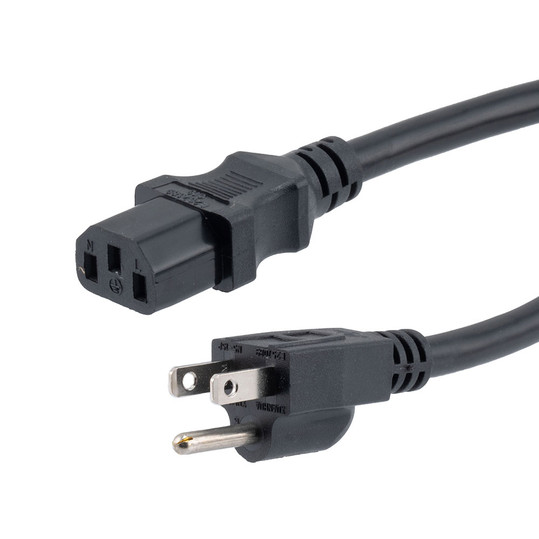
What Is A Gpu Power Cable?
A GPU power cable, often labeled as “PCIe,” is designed to supply power to the GPU (Graphics Processing Unit). The GPU is responsible for rendering images and videos, making it a critical component in gaming and graphic-intensive tasks.
Differences Between Cpu And Gpu Power Cables
While both cables are crucial for powering vital components of your PC, they serve different functions and are not interchangeable. The CPU cable is generally an 8-pin connector (4+4), whereas the GPU cable is usually a 6-pin or 8-pin connector designed specifically for PCIe devices.
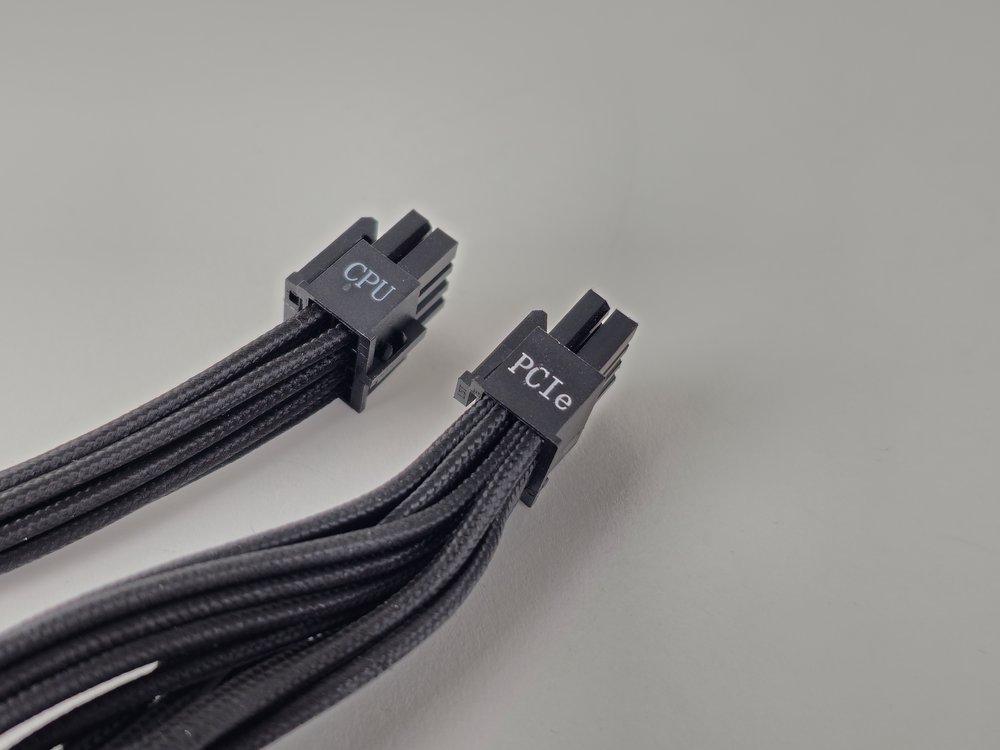
Physical Differences Between Cpu And Gpu Cables
Connector Types
One of the main differences between CPU and GPU cables is the type of connector they use. CPU cables typically have a 4+4 pin connector, while GPU cables are often 6-pin or 8-pin connectors. These connectors are not only different in shape and size but are also keyed differently to prevent incorrect installation.
Pin Configuration
The pin configuration of these cables is another critical difference. CPU cables are designed with specific pins to match the motherboard’s power requirements, while GPU cables are configured to deliver power according to the needs of the graphics card.
Using the wrong cable can result in improper power delivery.
Cable Length And Design
In some cases, CPU and GPU cables may also differ in length and design. GPU cables are often longer to reach the graphics card, which may be further away from the power supply unit (PSU) compared to the CPU.
Electrical Differences Between CPU and GPU Cables:
Voltage Requirements
The voltage requirements for CPUs and GPUs are different, which is reflected in the design of their respective cables. CPU power cables are designed to deliver a stable voltage to the CPU, while GPU cables are built to handle the power fluctuations that GPUs can cause, especially under heavy load.
Power Delivery Capabilities
GPU cables are often required to deliver more power compared to CPU cables. This is particularly true for high-end GPUs, which can consume significant amounts of power. Using a CPU cable in place of a GPU cable could lead to insufficient power delivery, causing the GPU to underperform or even fail.
Why You Shouldn’t Use CPU Cables For GPU?
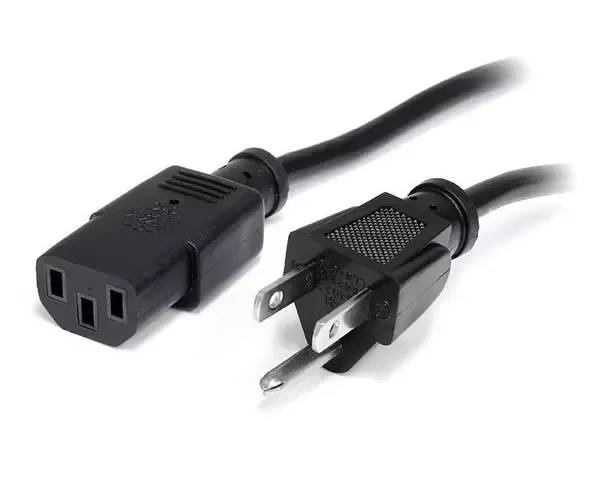
Compatibility Issues
CPU and GPU cables are designed with different power requirements in mind. Using a CPU cable for a GPU may result in compatibility issues, leading to improper power delivery and potential damage.
Manufacturer Recommendations
Manufacturers typically advise against using CPU cables for GPUs. Following these recommendations is crucial to maintaining the warranty on your components and ensuring the longevity of your build.
What Happens If You Use a CPU Cable for GPU?
Immediate Effects
If you attempt to use a CPU cable for your GPU, you might notice that your PC fails to boot, or the GPU does not receive power. This is because the cable is not designed to deliver the necessary power to the GPU.
Long-Term Risks
Even if your system initially boots, using the wrong cable can lead to long-term damage. The GPU may suffer from power fluctuations, leading to reduced lifespan and potential failure over time.
How To Identify The Correct Cable For Your Gpu
Reading Labels And Specifications
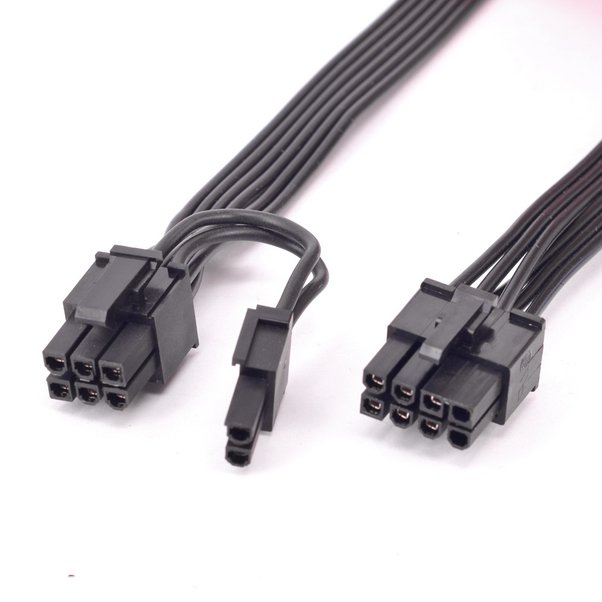
To avoid confusion, always read the labels and specifications on your cables. Most power supply units label their cables, making it easier to identify the correct one for your GPU.
Matching Connector Types
Ensure that the connectors match the ports on your GPU. The connectors should fit snugly without requiring excessive force, indicating that they are compatible.
Why It’s Important to Use the Correct Cables
Ensuring System Stability
The correct cables ensure that each component in your system receives the power it needs to operate efficiently and reliably. Stability is crucial for tasks like gaming, content creation, and even everyday use.
Protecting Your Hardware Investment
Using the right cables protects your investment in your computer’s hardware. Given the cost of modern GPUs and CPUs, it’s worth taking the time to ensure you’re using the correct cables.
What To Do If You Don’t Have The Right Gpu Cable?
Buying A Replacement Cable
If you don’t have the correct GPU cable, the best course of action is to purchase a replacement. Many electronics stores and online retailers offer GPU power cables that are compatible with a wide range of PSUs.
Contacting The Manufacturer
In some cases, you may need to contact the manufacturer of your power supply unit to obtain a replacement cable. They can provide you with the exact cable designed for your PSU model.
Are Cpu And Gpu Power Cables The Same?
No, CPU and GPU power cables are not the same. CPU cables are designed for the CPU, while GPU cables, often labeled as PCIe, are specifically for the GPU. They have different connectors and power requirements.
Can Cpu Cables Be Used As Pcie?
No, CPU cables cannot be used as PCIe cables. They have different connectors and are designed for different components. Using a CPU cable for PCIe can cause compatibility issues and may damage your hardware.
Can You Use Cpu Slot For Gpu?
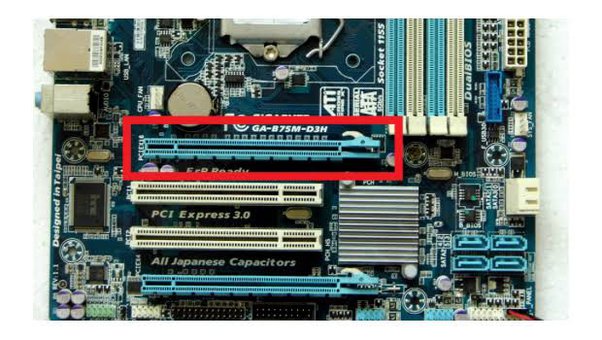
No, a CPU slot cannot be used for a GPU. The CPU slot on the motherboard is specifically designed for the processor, while GPUs use PCIe slots. They are not interchangeable and serve different functions.
Can You Use A Pcie Cable For A Gpu?
Yes, you can and should use a PCIe cable for a GPU. PCIe cables are specifically designed to power GPUs, ensuring they receive the necessary power for optimal performance. Always use the correct cable for your GPU.
Can I Use A Cable Labeled Cpu For Gpu?
No, you should not use a cable labeled CPU for a GPU. CPU cables are designed for the processor and may not provide adequate power or compatibility for a GPU, leading to potential damage or malfunctions.
Can I Put My Gpu In Any Pcie Slot?
Not all PCIe slots are suitable for a GPU. The GPU should ideally be placed in the primary PCIe x16 slot for optimal performance. Other slots may not provide the necessary bandwidth or power.
Use Cpu Power Connector For Gpu?
No, you should not use a CPU power connector for a GPU. The connectors and power delivery are different, and using the wrong one can cause insufficient power supply or damage to your GPU.
Can I Power A Card Using Cpu Eps Cable + Adapter?
While some adapters exist, it’s generally not recommended to use a CPU EPS cable with an adapter for powering a GPU. It can lead to compatibility issues, improper power delivery, and potential hardware damage.
Can You Plug Cpu Cable For Gpu?
No, you should not plug a CPU cable into a GPU. CPU cables are not designed for GPUs, and doing so can result in improper power delivery, potentially damaging your GPU or other components.
Is It Okay If I Use 8 Pin Only On An 8+6 Pin Gpu?
No, using only the 8-pin connector on an 8+6 pin GPU is not recommended. Both connectors should be used to ensure the GPU receives adequate power, preventing performance issues or hardware damage.
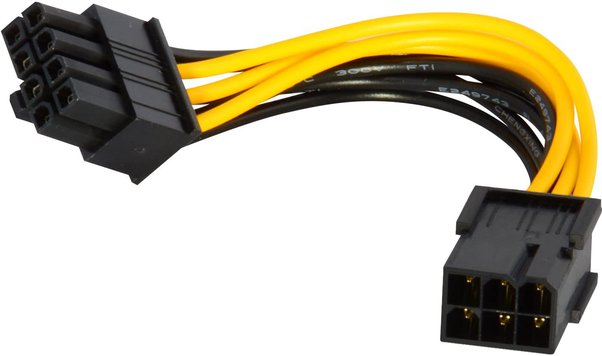
Does Pcie Matter For Gpu?
Yes, the PCIe slot matters for the GPU. The bandwidth and power delivery of the slot affect GPU performance. A PCIe x16 slot is typically recommended for optimal GPU performance in most systems.
Do You Need Two Separate Pcie Cables For Gpu?
Yes, using two separate PCIe cables for a GPU with multiple power connectors is recommended. This ensures better power distribution, stability, and reduces the risk of overloading a single cable or connector.
Can I Use 6-Pin On 8 Pin Gpu?
No, you should not use a 6-pin connector on an 8-pin GPU. The 8-pin connector is required to deliver the necessary power. Using a 6-pin connector may result in insufficient power and performance issues.
Does Gpu Draw Power From Pcie Slot?
Yes, GPUs draw power from the PCIe slot, but high-performance GPUs also require additional power through PCIe cables. The slot alone cannot provide enough power for more demanding GPUs, hence the need for external connectors.
Can I Use Cpu Cable For Gpu?
No, you should not use a CPU cable for a GPU. CPU cables are not designed for the power requirements of a GPU, and using them can lead to insufficient power delivery, overheating, and potential hardware damage.
Also Read: Is 30 Degrees Idle Good GPU? – Complete Guidance Of 2024!
Can I Use Pcie Cable For Cpu Power?
No, you should not use a PCIe cable for CPU power. The connectors and power requirements differ between the CPU and GPU, and using the wrong cable can result in system instability or hardware damage.
Accidentally Plugged Cpu Cable Into Gpu?
If you accidentally plugged a CPU cable into a GPU, immediately unplug it and replace it with the correct PCIe cable. Continuing to use the wrong cable can lead to insufficient power, system instability, or hardware damage.
Pcie Or Cpu Cable For Gpu?
You should use a PCIe cable for a GPU. PCIe cables are specifically designed to meet the power requirements of a GPU, ensuring stable performance and preventing potential damage to your hardware.
Are Cpu And Pcie Cables The Same?
No, CPU and PCIe cables are not the same. CPU cables are for powering the CPU, while PCIe cables are designed for GPUs and other PCIe devices. They have different connectors and power specifications.
FAQs:
1. Can I Use A Cpu Cable For A Gpu Temporarily?
No, it’s not recommended to use a CPU cable for a GPU even temporarily. The wiring and power requirements are different, which can lead to serious damage.
2. What Happens If I Use The Wrong Cable For My Gpu?
Using the wrong cable can result in system instability, hardware damage, and voided warranties. It’s crucial to use the correct cables for each component.
3. Are There Universal Cables For Both Cpu And Gpu?
No, CPU and GPU cables are not universal. Each has specific wiring and power delivery requirements that must be met.
4. How Do I Know If My Cable Is Compatible With My Gpu?
Check your GPU’s manual and the PSU’s documentation. They will provide details on the type of cable needed and any specific connector configurations.
5. What Are The Best Practices For Cable Management?
Keep cables tidy and well-routed to improve airflow and reduce the risk of damage. Use cable ties and straps to secure cables, and always double-check connections before powering on your system.
Final Words:
No, you should not use a CPU cable for a GPU. CPU and GPU cables have different connectors and power specifications. Using a CPU cable for your GPU can lead to improper power delivery, which could cause system instability, damage to your GPU, or even other components in your PC. Always use the correct cable designed specifically for your GPU to ensure safe and reliable operation.
Read More:
